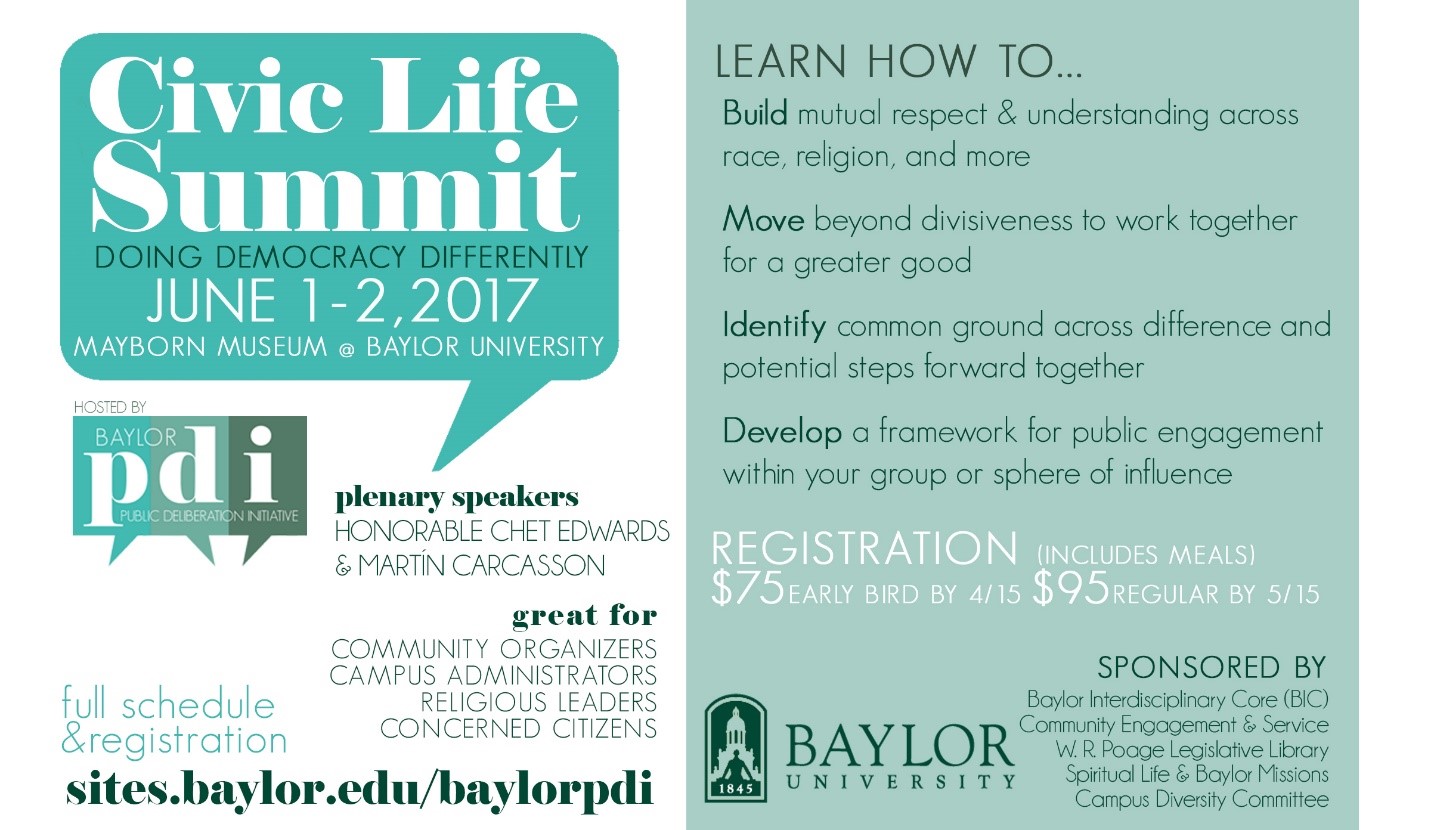Controversy with Civility: The Art of Disagreeing Well
By Erin Payseur
Trump. Ferguson. Gay marriage. Planned Parenthood. Immigration. National Debt. Living Wage. Religion. Politics. Do you cringe when these topics come up? Do these words automatically bring to mind the same old heated sound bites we’ve heard over and over? For some of us, hot topics like these create a visceral emotional response that seems to yell & scream at us, “No, don’t go there. You better not open that can of worms! That’s too heated of a topic. That’s too sensitive. No one wins in these conversations.” Sometimes, I wish I could heed those voices. Sometimes, I wish I could opt out of the conversations. I would much rather avoid the conflict and the messiness of conversations about which I know others will disagree. After all, who likes conflict?
No matter how much those voices in me say don’t bring it up, though, truth be told, I sense a calling to talk about these issues. As a student affairs practitioner, I sense the need to guide students in making meaning of the world and to understand why these issues provoke such strong responses from all of us. I sense the need to give them courage to enter the conversation instead of run from it, to engage instead of retreating in silence. While these issues are sensitive and controversial, they are also vitally important in terms of who we want to be as a society and how we choose to live with one another in community. If we leave them to the pundits, will we solve the problems? Will we find ways forward together?
Make no mistake, engaging in this kind of work is often a messy process. It means being willing to have the hard conversations. It means being willing to listen and to love the other. It means celebrating moral courage and conviction, even in those with whom we may disagree. For my students, though, I want to give them skills to have these conversations – to go beyond the surface of the sound bites, to understand & respect multiple viewpoints, and to truly connect with others across difference to make our world a better place.
I don’t just want that for my students, though, I want that for all of us. I want it for my church, my neighborhood, my city. I want that for myself, to have the courage and conviction to listen and to learn and to love others well.
This is why I am so excited about the upcoming Civic Life Summit we are hosting in Waco. We are creating space to learn together how to have these kinds of conversations, how to engage when it is not easy, how we can talk about tough issues respectfully and identify ways to work together in community and to be community together.
If you share that desire for something better, come join us! You’ll see examples of a better kind of conversation across difference, and you will leave with tools and ideas for being a part of changing the conversation in your community.

 Erin Payseur is the Associate Director of Civic Learning Initiatives at Baylor University. She has over ten years of experience in civic engagement and higher education. As part of the Office of Community Engagement & Service, she develops sustainable frameworks civic learning initiatives to guide students in considering their roles as leaders and citizens. She has authored several articles and presented nationally on civic engagement, service, and leadership. She has a B.A. degree in Religion/ Philosophy from Presbyterian College and a M.Ed. in Higher Education & Student Affairs from the University of South Carolina. Erin is a co-founder of Baylor’s Public Deliberation Initiative and is a current fellow with the Kettering Foundation New Centers for Public Deliberation.
Erin Payseur is the Associate Director of Civic Learning Initiatives at Baylor University. She has over ten years of experience in civic engagement and higher education. As part of the Office of Community Engagement & Service, she develops sustainable frameworks civic learning initiatives to guide students in considering their roles as leaders and citizens. She has authored several articles and presented nationally on civic engagement, service, and leadership. She has a B.A. degree in Religion/ Philosophy from Presbyterian College and a M.Ed. in Higher Education & Student Affairs from the University of South Carolina. Erin is a co-founder of Baylor’s Public Deliberation Initiative and is a current fellow with the Kettering Foundation New Centers for Public Deliberation.
The Act Locally Waco blog publishes posts with a connection to these aspirations for Waco. If you are interested in writing for the Act Locally Waco Blog, please email [email protected] for more information.
